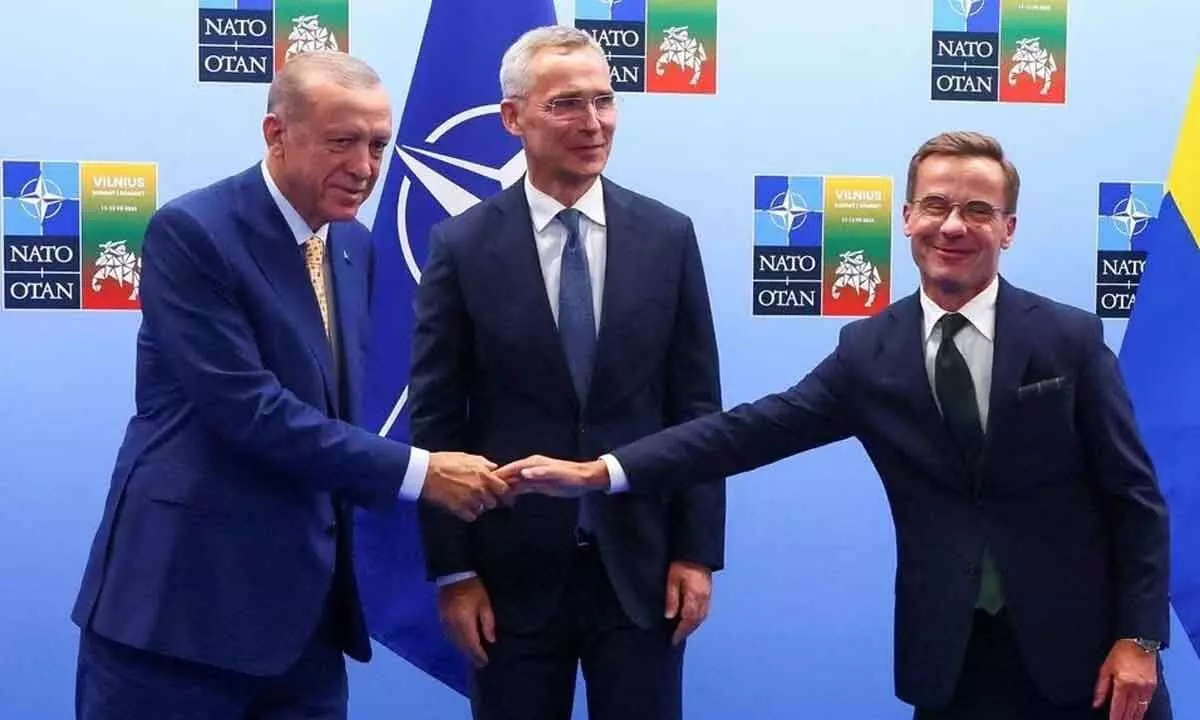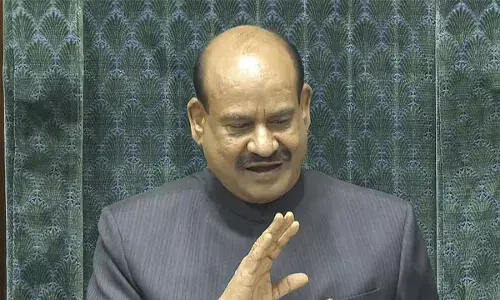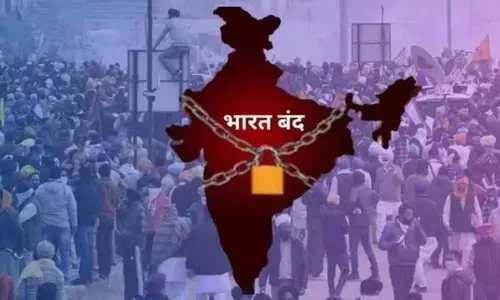At last, Sweden is joining Nato

What that means for the alliance and the war in Ukraine
Anyone watching the Vilnius summit will naturally now be asking whether the shift changes the situation for Ukraine’s membership aspirations, an answer is unlikely to be on the near horizon. Any final decision on Ukraine being offered a membership action plan for the time being is a bridge too far, especially in the current context of an ongoing war with an outcome that, as yet, is unpredictable
In a surprise move, Turkey has ended its veto on Sweden joining Nato, thereby removing all the barriers to its membership of the military alliance. Hungary quickly followed suit and, as a result of the two countries’ support, a consensus was able to be reached at the 2023 Nato summit in Vilnius, Lithuania. Turkish President Recep Tayyip Erdogan agreeing to support Sweden’s bid to join will be touted as one of the key achievements of the summit.
Sweden submitted its formal application for membership in May 2022 alongside Finland, which was admitted into the alliance in April 2023. Sweden, though not a formal member, has had a very close relationship with Nato for almost 30 years, since joining the alliance’s Partnership for Peace programme in 1994. It has contributed to Nato missions. And as a member of the European Union and contributor to the bloc’s common security and defence policy, it has also worked closely with the vast majority of European Nato allies.
In pursuing Nato membership, both Sweden and Finland have dramatically shifted their traditional policy of military non-alignment. A critical driver of this move was, clearly, Russia’s invasion of Ukraine in February 2022. It is also more evidence that Russian President Vladimir Putin has failed to achieve two of his own strategic objectives: weakening solidarity in the alliance and preventing further Nato enlargement towards Russia’s borders. Finland and Sweden’s accession is of significant operational importance to how Nato defends allied territory against Russian aggression. Integrating these two nations on its north flank (the Atlantic and European Arctic) will help to solidify plans for defending its Ukraine-adjacent centre (from the Baltic Sea to the Alps). This will ensure that Russia has to contend with powerful and interoperable military forces across its entire western border.
Why Turkey lifted its veto For a few years now, Turkey’s relationship with Nato has been nuanced and strained. Turkey’s objections to Sweden’s accession were ostensibly connected to its concerns over Sweden’s policy towards the Kurdistan Workers’ Party, or PKK. Turkey has accused Sweden of hosting Kurdish militants. Nato has acknowledged this as a legitimate security concern and Sweden has made concessions as part of its journey towards Nato. The main material driver of the agreement, however, may always have been a carrot being dangled by the US. American President Joe Biden now appears to be moving forward with plans to transfer F-16 fighter jets to Turkey – a deal that appears to have been unlocked by Erdogan’s changed stance on Sweden. But it is often the case that a host of surrounding deals and suggestions of deals can help facilitate movement at Nato.
Everyone, including Turkey, now seems able to sell the developments as a win to their constituents back home. The ‘Nordic round’ Sweden’s accession means all Nordic nations are now part of Nato. As well as being significant in operational and military terms, this enlargement has major political, strategic and defence planning implications. Although Finland and Sweden have been “virtual allies” for years, their formal accession means some changes in practice. Strategically, the two are now free to work seamlessly with the rest of the Nato allies to plan for collective defence. Integrating strategic plans is extremely valuable, particularly considering Finland’s massive border with Russia and Sweden’s possession of critical terrain like the Baltic Sea island of Gotland. This will increase strategic interoperability and coordination.
But while anyone watching the Vilnius summit will naturally now be asking whether the shift changes the situation for Ukraine’s membership aspirations, an answer is unlikely to be on the near horizon. Any final decision on Ukraine being offered a membership action plan for the time being is a bridge too far, especially in the current context of an ongoing war with an outcome that, as yet, is unpredictable.
(Smith works at Staffordshire University, UK, and Becker at United States Military Academy West Point; The Conversation)











